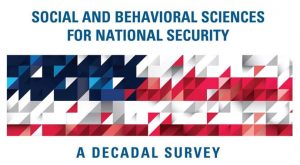Noshir Contractor delivered a keynote titled “Combining Big Data and Conventional Methods” at the Computational Communication Science conference, on February 16th in Hanover, Germany.
SONIC welcomes Cristina Casareale
SONIC welcomes Cristina Casareale, a visiting Ph.D. student in Civil and Environmental Protection at the Università Politecnica delle Marche (Ancona, Italy). During her 6 month visit, Cristina will work with SONIC to study the networks among the key players involved in response to the 2012 Costa Concordia maritime disaster.
Social influence and discourse similarity networks in workgroups
by Johanne Saint-Charles and Pierre Mongeau
Adopting a socio-semantic perspective, this study aims to verify the relation between social influence and discourse similarity networks in workgroups and explore its modification over time. Data consist of video transcripts of 45, 3-h group meetings and weekly sociometric questionnaires. Relation between tie strength, actor centrality within the influence network, and shared elements of discourse between group members are examined over time. Observed correlations support the hypothesis of a relation between social influence and discourse similarity. Changes over time suggest a similarity threshold above which the relation between similarity and influence is reversed.
Read the full article here.
SONIC will present at the ICA in May 2018
Two SONIC papers will be presented at the 68th Annual Conference of the International Communication Association in Prague, the Czech Republic on the 24-28 of May 2018.
Tanaka, K., DeChurch, L., & Contractor, N. (2018, May). Origins of omission and commission errors in perceptions of group communication networks.
Schultz, M., DeChurch, L., & Contractor, N. (2018, May). Communicating through space and over time.
Also, Noshir will participate on a panel titled “Professor as entrepreneur: opportunities and risk.” The title of his presentation is Why inhaling digital exhaust is taking organizational performance and the science of communication and technology to new highs.
SONIC-collaborated paper to be presented at the 3rd Interdisciplinary Perspectives on Leadership Symposium
A paper, co-authored by Noshir Contractor will be presented at the 3rd Interdisciplinary Perspectives on Leadership Symposium, to be held on May 10-12th in Chania, Greece. The Symposium theme is “What leaders actually do.”
Mesmer-Magnus, J., Niler, A., DeChurch, L.A., & Contractor, N.S. (2018, May). Working and leading the way to Mars: How work affects shared leadership. Paper to be presented at the 3rd Interdisciplinary Perspectives on Leadership Symposium, Chania, Greece.
Diego Gómez-Zará presents at Kellogg Enlace
On January 30th, 2018, the Ph.D. Student Diego Gómez-Zará presented at the Kellogg School of Management at Northwestern University. This talk was organized by the program ENLACE
Diego’s talk was titled “The Role of Social Movements in Twitter: Evidence from the Chilean Student Movement.” He presented the current role of organizations in social media. In the digital era, organizations have become active actors, where they must motivate, interact, and engage with their audiences permanently.
Noshir Contractor attends an SBS Decadal Workshop on Workforce Development
On January 24th, 2018, Noshir chaired a workshop on Workforce Development and Intelligence Analysis, designed to gather information for the Decadal Survey of Social and Behavioral Sciences for Applications to National Security.

Population structured by witchcraft beliefs
Anthropologists have long argued that fear of victimization through witchcraft accusations promotes cooperation in small-scale societies. Others have argued that witchcraft beliefs undermine trust and therefore reduce social cohesion. However, there are very few, if any, quantified empirical examples demonstrating how witchcraft labels can structure cooperation in real human communities. Here we show a case from a farming community in China where people labelled zhu were thought capable of supernatural activity, particularly poisoning food. The label was usually applied to adult women heads of household and often inherited down the female line. We found that those in zhuhouseholds were less likely to give or receive gifts or farm help to or from non-zhu households; nor did they have sexual partnerships or children with those in non-zhu households. However, those in zhuhouseholds did preferentially help and reproduce with each other. Although the tag is common knowledge to other villagers and used in cooperative and reproductive partner choice, we found no evidence that this assortment was based on cooperativeness or quality. We favour the explanation that stigmatization originally arose as a mechanism to harm female competitors. Once established, fear that the trait is transmissible may help explain the persistence of this deep-rooted cultural belief.
Source: Nature
Scale-free Networks Are Rare
Recently Aaron Clauset and his colleague share their new study: “Scale-free networks are rare”. In this study, they found scale-free network structure is not so prevalent based on their statistical analyses of almost 1000 network datasets across different domains. In particular, their results indicate only 4% of the datasets showing the strongest-possible evidence of scale-free structure and 52% demonstrating the weakest-possible evidence.
Additionally, this study has invoked intense conversations over Twitter. For instance, Laszlo Barabasi retweeted Aaron Caluset’s tweet, saying “Every 5 years someone is shocked to re-discover that a pure power law does not fit many networks. True: Real networks have predictable deviations. Hence forcing a pure power law on these is like…fitting a sphere to the cow. Sooner or later the hoof will stick out.”
Link to the paper: https://arxiv.org/abs/1801.03400
Link to Barabasi’s retweet: https://twitter.com/barabasi/status/952920675592953856
SONIC welcomes Kitty Cheung
We are delighted to welcome Kitty Cheung as a post-baccalaureate researcher working with SONIC and ATLAS research groups at Northwestern University. Kitty received her undergrad at Northeastern University where she worked with Professor Brooke Foucault-Welles, a SONIC alum. During her six months with us, Kitty will research how startup teams assemble and how this impacts their future success.
